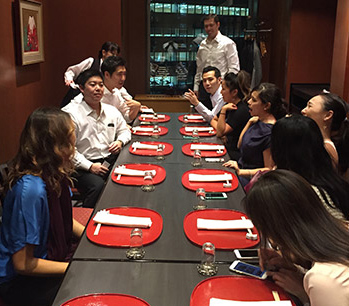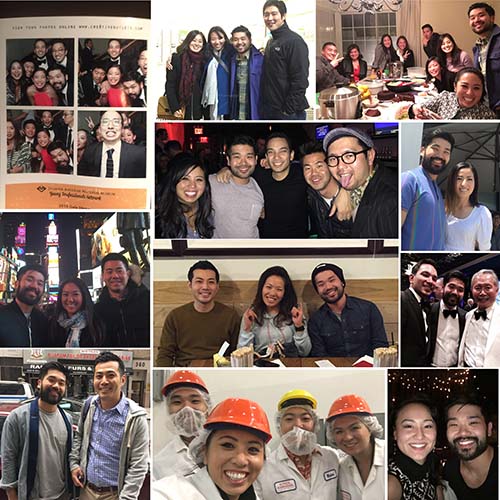David Kenji Chang
Reflection from David Kenji Chang (ELP 2015)
I’ve been asked about it so many times, the story almost feels apocryphal: my entire ELP class, incapable of handling the overwhelming emotional catharsis of attending a conference for three days with relative strangers, cried together on our last night in Tokyo. This is mostly true, but to set the record straight, (1) I’m pretty sure only nine of the twelve of us cried and (2) I would say that I bawled, not cried.

Twelve years ago, when I took my first shaky steps into the working world in Chicago, one of the first things I did was try to find a community organization focused on young Japanese American professionals. I figured if Chicago had enough Japanese people to necessitate a Mitsuwa, such a group must exist. I was wrong.
But I never really gave up. And nearly a decade later, I found Stacy Uchida, and she introduced me to USJC and suggested I apply to ELP.
Being selected as an Emerging Leader and attending the Annual Conference was a watershed moment for me. It was a sigh of relief and a shot of adrenaline knowing I finally found something I had sought for so long. The experience was so galvanizing and rejuvenating that my brain barely let me sleep at the conference. Since returning from Tokyo, I have done whatever I can – working on committees, volunteering, supporting events and contributing financially.
But it is more than that. ELP has changed my life so dramatically in seven months that my previous life seems foreign. It is not just a network or program. It is a family. We talk every day, and when we gather, it is electric. The group’s collective energy is staggering, and the bonds that form are so instant and deep that they seem impossible or unsustainable. It has no reasonable analogy to anything else I’ve experienced. And our one unifying thread is our shared Japanese American heritage.
ELP taught me that there is still an astonishing and uniquely beautiful power in bringing our community together. It shows that there are young Japanese Americans we can bring into this group, and that the future of USJC is bright if we’re willing to find them. USJC does a lot of tremendous programming, but to me, my experience was proof that this very basic task – providing a place for Japanese Americans to meet, network and collaborate – is USJC’s most vital work and its greatest reason for existing.

Take my class. We couldn’t have traveled more wildly diverse roads to being called Japanese American, but somehow that commonality still echoes cleanly across gaps in personal history, language and geography. It vibrates at the same frequency from a deep and primitive place in each of us. USJC has finally given that essential part of us a home and a family to share it with. It’s enough to make you want to, well, cry.
I guess when you think about it, nine out of twelve isn’t bad.